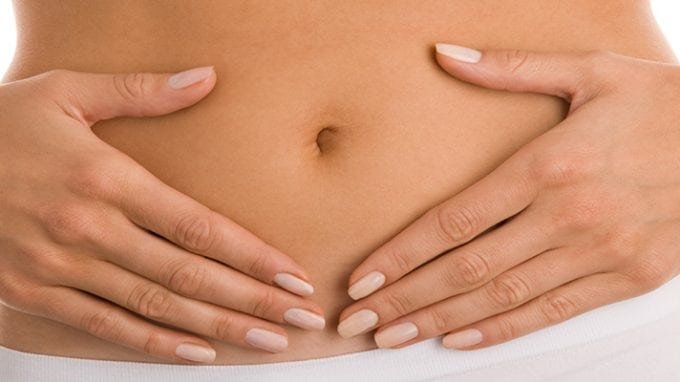Whether you have started seeking professional fertility assistance or are just getting started with family planning, when it comes to improving your fertility health there are a number of factors to consider and oxidative stress is a commonly overlooked factor.
Research has found that significantly reducing oxidative stress and tracking reactive oxygen species (ROS) production can positively improve men and women’s chances of conceiving. Thus, having a good understanding of what these terms refer to can be beneficial on the road to improving fertility.
A Look at ROS and Oxidative Stress
Reactive oxygen species aren’t species in terms of what we would normally recognize as a plant or animal life form, but rather they are molecules that have lost an electron due to chemical reactions during normal metabolism. They’re also known as oxygen radicals or pro-oxidants and fall into the catch-all category of “free radicals,” since the term refers to unstable atoms and molecules that lead to oxidative stress and can damage cells. In a healthy body, reactive oxygen species and antioxidants typically remain in a state of balance. While reactive oxygen species, can have an important role in the body by supporting basic cellular processes and viability during this balance, when they become excessive and unbalanced, due to stress factor responses, lack of antioxidant presence, external toxin exposures, or other oxidative stress promoters, they can easily react with other molecules in a cell and cause damage to the cells’ DNA, RNA and proteins, and if left unchecked, can even lead to cell death.
Needless to say, an unregulated buildup of reactive oxygen species isn’t especially good for the body. When the body’s ability to regulate and counteract the negative effects of reactive oxygen species falls behind the increased level of altered molecules, the body experiences oxidative stress. In other words, oxidative stress is caused due to an imbalance between production and accumulation of reactive oxygen species in the body’s cells and tissues, leaving the body unable to properly detoxify the reactive buildup or ROS.
While this accumulation of ROS and resulting oxidative stress, does have an impact on all the body’s functions, from brain chemistry to LDL cholesterol levels in the blood, it can especially impact fertility in both men and women.

Among the many impacts that oxidative stress may have on sperm condition and male fertility health are adverse effects on the structural integrity and overall functionality of sperm, including defective sperm function; and mitochondrial and nuclear DNA damage affecting the sperm epigenome, which can lead to infertility, recurrent miscarriage, and increased risk of disease in offspring.
Ergo, men exposed to elevated or chronic quantities of oxidative imbalances often register diminished sperm counts, which makes conception challenging and sometimes impossible.
In addition to impacting men’s fertility, oxidative stress can wreak havoc on women’s fertility health and affect multiple physiological processes from oocyte maturation to fertilization, embryo development and pregnancy health and outcome.
ROS can affect a variety of physiological functions in the reproductive tract and unbalanced concentrations and prolonged oxidative stress may play a major role in various fertility variables including embryo development, ovulation, implantation and fertilization, defective placentation.
This imbalance of ROS and presence of oxidative stress can lead to a number of reproductive diseases. ROS’ role has been found in the onset of polycystic ovary syndrome (PCOS), due to deterioration of mitochondrial function which increases oxidative stress’ influence on PCOS development. Studies show that ROS imbalance is more present in PCOS patients, especially those with insulin resistance. Studies show that the progression of endometriosis is clearly related to oxidative stress by inducing ovarian damage and endometrial tissue. Fertility and pregnancy complications such as spontaneous abortion, recurrent pregnancy loss, unexplained infertility, free radical-induced birth defects and preeclampsia development have also been found to be due, at least in part, as a response to oxidative stress.
Oxidative Stress, Free Radicals and Antioxidants
The accumulation of ROS free radicals, and thus the resulting oxidative stress, can have a number of negative impacts on the body. They can precipitate a decreased concentration of beneficial nutrients, and the oh-so-popular buzzword, known as antioxidants. chemicals crucial to preventing a systemic buildup of inflammation, vital to cell repair and the healing process.
Antioxidants, which are derived from food sources and natural production processes are the body’s first line of defense. These antioxidants quite literally denature ROS molecules and render them harmless. Either endogenously generated or externally supplied, antioxidants are capable of scavenging excess ROS and other free radicals in the body and reducing the oxidation of cellular molecules, ultimately alleviating oxidative stress and its harmful effects.
Reducing Oxidative Stress, Naturally
When we talk about keeping a healthy balance of reactive oxygen species and free radicals to reduce oxidative stress and improve fertility, we aren’t just speaking to one gender or the other. Taking steps to reduce oxidative stress in the body and reproductive system is great for both partners, and increases not only the body’s overall health, but also the likelihood of pregnancy, a successful term and a healthy baby.
Endogenous oxidative stress can be balanced and naturally reduced in two ways: by prevention of excess ROS formation or by combatting ROS with increased antioxidants, however evidence suggests that the latter option and antioxidant supplements alone, do not offer sufficient protection against oxidative stress when additional steps are not taken. The key is to decrease oxidative-stress-induced damage with preemptive measures to limit ROS imbalances from occurring.

Caloric restriction (CR), as long as there is no malnutrition and there is adequate mineral intake, has also been found to work in some cases to decrease oxidative stress, as the mechanism of dietary restriction can activate the defense response evolved to help the body cope with the adverse conditions. A good example of this is found with intermittent fasting.
Click here for A Couple’s Guide to Starting and Maintaining a Fertility-Friendly Diet
Along with your spectrum of fruits and vegetables, be sure to incorporate good fats (mono and polyunsaturated fats), and kick the bad ones to the curb (hydrogenated, most saturated and trans fats). Select fatty fish such as salmon, tuna, sardines, mackerel, and trout; seeds such as flax, chia, pumpkin, sunflower and hemp seeds; nuts such as almonds, peanuts, walnuts and pistachios; avocado, olive oil and hard cheeses to give a boost to your body’s ability to fight free radicals.
Additional dietary recommendations include reducing processed food intake and calorie-dense refined sugars and increasing intake of antioxidant-rich foods and foods high in omega-3 fatty acids, such as those aforementioned, berries, eggs, artichokes, red cabbage, beans and legumes. A major key to conquering oxidative stress is increasing systemic concentration of antioxidants. Common antioxidants found in foods and vitamin supplements include flavonoids, resveratrol, vitamin C, pantothenic acid, and carotenoids.

Practicing regular, but moderate physical activity is associated with a lower resting metabolic rate, higher natural antioxidant levels and activity, lower oxidation of LDLs and more protection against oxidation of proteins and DNA. Additionally, regular moderate exercise can also lead to improved insulin sensitivity and overall reductions of oxidative stress and inflammation.
Click here for our 30-Day Guide to Better Fitness for Fertility Health
Smoking cigarettes is also one of the habits that contributes to an imbalanced system and promotes oxidative stress. Toxins in cigarettes may cause numerous health problems including the release of systemic free radicals. If you smoke, take the necessary steps to quit once and for all. For hopeful mothers, its often recommended that you quit smoking at least a year in advance of conception for prenatal health considerations.
Likewise, limiting your alcohol consumption can also help reduce oxidative stress. Alcohol contains countless chemicals that can precipitate cellular damage and accelerate or exacerbate oxidative stress. Alcohol-induced oxidative stress is linked to the metabolism of ethanol, this ethanol metabolism is directly involved in the production of reactive oxygen species, creating an environment favorable to the formation of oxidative stress.
Easier said than done, but regular stress reduction techniques are essential for your health. When the body is faced with increased stress, adrenalin is released into the blood. If adrenalin is not used for either fight or flight, it oxidizes and increases the presence and effects of oxidative stress, thus, emotional stress is associated with higher biomarkers for oxidative stress.
Click here for Stress Reduction Techniques to Help with Conception
From cleaning chemicals, unnecessary radiation exposure, pesticide usage on food or in gardening, and being aware of daily air pollutant levels, avoiding or limiting your exposure to chemicals and external toxins can help limit oxidative stress.
This tip might not always be feasible, especially in relation to airborne substances. However, physicians caution individuals to carefully monitor and, wherever and whenever possible, minimize their contact with chemicals such as cleaning solvents, beauty products and gardening pesticides. These products are rife with chemicals capable of negatively impacting the oxidation process. The greater contents of oxygen in certain chemicals and pollutants can contribute to their reactive oxidative activity, and mediating responses to protective processes, leading to oxidative stress and damage to the body’s cells.
In all organisms, melatonin is produced primarily during the daily periods of darkness, for this reason, be sure to sleep long enough and in complete darkness in order for your body to produce the necessary amounts of the powerful antioxidant, melatonin. Used by the body for more than just getting to sleep, melatonin can benefit the body with added protection of nuclear and mitochondrial DNA, as it has antioxidant properties.
Studies have found that sleep deprivation is associated with lower protective antioxidant levels in the blood and recovery sleep, meaning quality extended amounts of sleep, can normalize antioxidant content in liver and enhanced enzymatic antioxidant activities in both the liver and the heart. The results all prove extended health effects from proper sleep can restore antioxidant balance and mitigate oxidative stress. Healthcare professionals suggest that adults get anywhere from seven to nine hours of restful and uninterrupted sleep per night.
Click here for Tips For Improving Sleep When TTC
While it is true that during the body’s natural process of detoxification the liver produces free radicals, it’s actually remarkably easy to assist in the neutralization of these substances.
Though ROS are present, oxidative stress will only occur if the body is exposed to more unbalanced ROS and toxins than the body can handle to balance itself. The key theme here is balance. When things become off-kilter and hormonal imbalances, lifestyle stressors or dietary insufficiencies occur, oxidative stress can become present and fertility healthy can be impacted. Like all fertility concerns, additional therapies, diagnosis, or procedures may be necessary but starting with a baseline understanding of creating a foundation for better overall health can ensure that you and your partner are practicing healthy and happy lifestyles that are moving you in the right direction.




